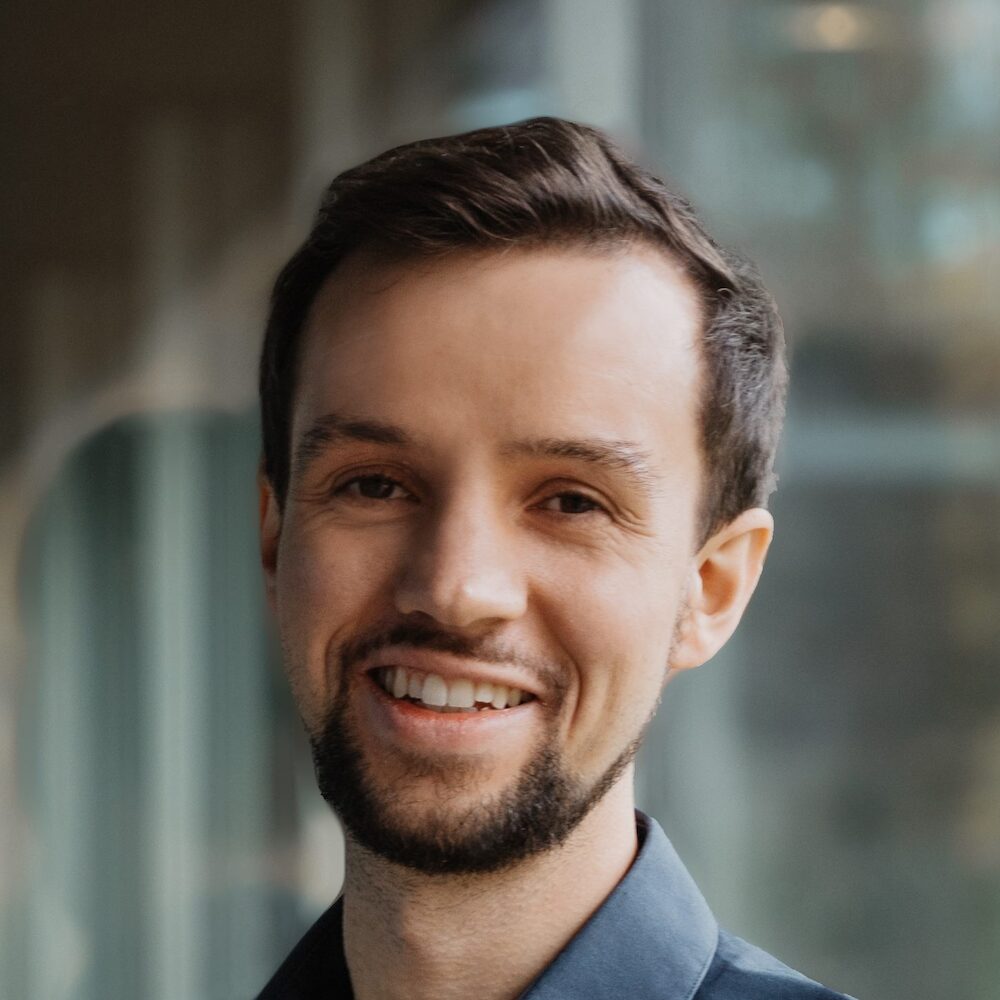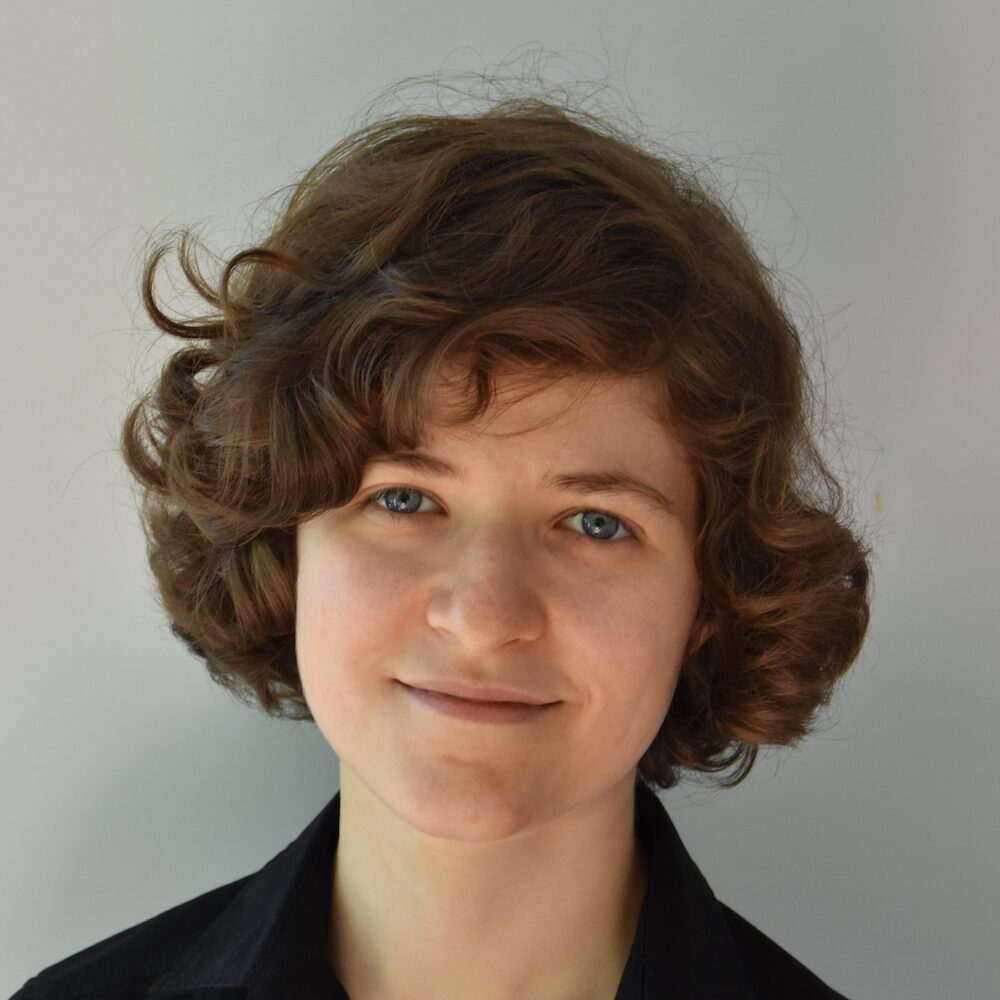Florian Fischer and Leonie Weissweiler (22.10.2025)
ScaDS.AI Dresden/Leipzig announces and welcomes you to join our public colloquium session on Wednesday, 22.10.2025, 1:00-3:00 p.m., when Human Computer Interaction meets Computational Linguistics. The colloquium takes place at seminar room “Zwenkauer See” at ScaDS.AI Dresden/Leipzig (details below) and in parallel online (link to Zoom session).

Dr Florian Fischer
- University of Cambridge: Research Associate in the Department of Engineering and Postdoctoral Member at Clare Hall
- Research seeks to advance the understanding of user behaviour in collaborative and adaptive interaction systems
Simulating and Enhancing Interactive User Behaviour:
A Computational Perspective
In Human-Computer Interaction (HCI), the validation and comparison of interfaces and interaction techniques is usually carried out through user studies or simple aggregation models that predict summary statistics such as average task duration. In this talk, I will propose forward simulations of interactive user behaviour as a highly powerful complementary tool for HCI. I will demonstrate how model-based simulations can provide additional insights into how and why users interact, and enhance our understanding of the role of human movement during interaction. Using the example of biomechanical reinforcement learning, I will show how user simulations can predict differences in comfort or fatigue at early stages in the design process. Finally, I will discuss the ongoing challenges of user simulations and the potential of computational modelling for human-AI collaboration and interaction design.
About Florian Fischer
Dr Florian Fischer is a Research Associate in the Department of Engineering, University of Cambridge, and a Postdoctoral Member at Clare Hall, Cambridge. His research focuses on developing computational methods to analyse and enhance the accessibility, ergonomics, and performance of intelligent systems, particularly in the context of virtual reality. With over five years’ experience in interaction design and computational modelling, Dr Fischer aims to integrate models and theories from human motor control, biomechanics, and cognitive science to create customised, AI-based user representations. His work seeks to advance the understanding of user behaviour in collaborative and adaptive interaction systems.

Dr Leonie Weissweiler
- PostDoc at Uppsala University Computational Linguistics
- Studies implications of large language models for linguistic theory and their uses for linguistic typology
Comprehensively Evaluating Language in Language Models
As Large Language Models (LLMs) are being increasingly used in high-stakes situations, it is vital that we accurately assess their strengths, but also their limitations. To this end, I ask: how can we ensure that we neither over- nor underestimate Language Models’ linguistic capabilities? For this, evaluations must consider the full breadth of human language. In my talk, I will demonstrate how progress can be made towards this goal in two aspects: multilingual evaluation, and evaluation for the long tail of language. For multilingual evaluation, I will show how agreement evaluation can be scaled to over 100 languages. For the long tail of language, I will report results from two investigations of language models’ understanding of the so-that construction, with which even state-of-the-art models struggle, even though rich distributional information is available in their training data. I will further demonstrate how LLMs themselves can be leveraged to annotate corpora for long-tail constructions. This will further stretch the boundaries of what we are able to test. All evaluations together paint a nuanced picture of the linguistic capabilities of large language models, showing achievements as well as remaining deficits.
About Leonie Weissweiler
Dr Leonie Weissweiler is a postdoc at Uppsala University Computational Linguistics, working with Joakim Nivre and supported by the Walter-Benjamin-Programme of the DFG (German Research Foundation). She’s interested in the implications of LLMs for linguistic theory, as well as their uses for linguistic typology.
She received her PhD in 2024 from Ludwig Maximilian University (LMU) of Munich, where she worked with Hinrich Schütze on computational approaches to construction grammar and morphology, with visiting positions at Carnegie Mellon University and Princeton University. Before her PhD, she studied computational linguistics in Munich and Cambridge, UK.
Location
ScaDS.AI Dresden/Leipzig
Löhrs Carré, Humboldtstrasse 25, 04105 Leipzig
3rd floor, large seminar room (A 03.07 “Zwenkauer See”)


